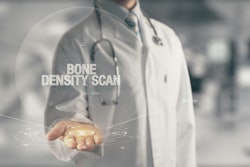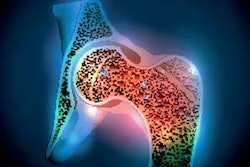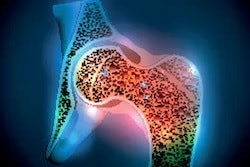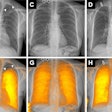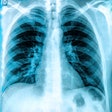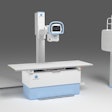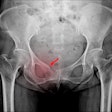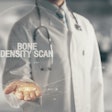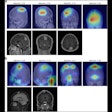A study has demonstrated for the first time a positive association between dietary choline with bone mineral density (BMD) in postmenopausal women.
The finding is from an analysis of dietary intake and dual-energy x-ray absorptiometry scans from 4,160 postmenopausal women and supports the potential of choline-targeted nutrition strategies for osteoporosis prevention, noted lead author Jincheng Bai, MD, of the Third Hospital of Shanxi Medical University in Taiyuan, China, and colleagues.
“Choline, a vital nutrient involved in lipid homeostasis and inflammatory pathways, has been associated with skeletal health. Yet its role in preserving bone density among postmenopausal populations, a group at high risk of osteoporosis, requires further investigation,” the group wrote. The study was published July 2 in Scientific Reports.
To that end, the group culled data from the U.S. National Health and Nutrition Examination Survey (NHANES) 2007-2018. The NHANES program, jointly administered by the Centers for Disease Control and Prevention and the National Center for Health Statistics, employs a demographically stratified sampling framework to evaluate health and nutritional metrics among community-dwelling U.S. residents.
For the analysis, they used a weighted linear regression model to characterize the dose-response relationship between total dietary choline intake and lumbar spine BMD.
According to the results, in fully adjusted models, each 1 g/day increment in choline intake corresponded to a 0.082 g/cm² increase in lumbar spine BMD. Participants in the highest choline intake quartile exhibited a 0.025 g/cm² higher BMD compared with the lowest quartile.
In addition, a stratified analysis showed significant effect modifications by obesity (p interaction = 0.015), income (p interaction = 0.003), and race (p interaction = 0.039), with amplified protective effects observed in obese individuals, high-income subgroups, and non-Hispanic whites, the researchers reported.
“This study demonstrates for the first time the positive association of dietary choline with BMD in postmenopausal women,” the group wrote.
Ultimately, the risk of osteoporotic fractures escalates when BMD falls below a certain threshold (T-score ≤ -2.5) and osteoporosis-related fractures diminish quality of life, increase fracture-associated mortality, and are responsible for substantial healthcare costs, the researchers wrote.
However, early-stage bone loss often remains clinically silent until osteoporotic fractures occur, they noted.
“Identifying modifiable factors influencing BMD in postmenopausal women is critical for refining osteoporosis risk assessment and advancing targeted prevention strategies,” they concluded.
The full study is available here.





